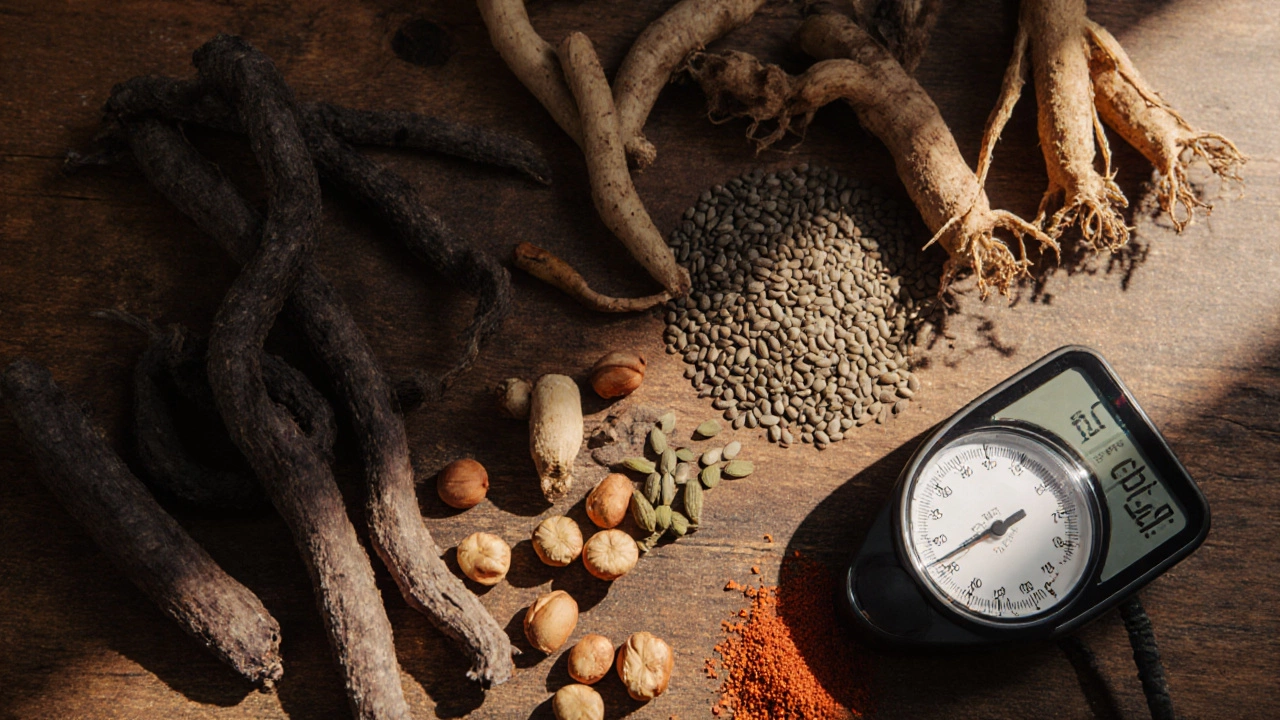Herbs That Increase Blood Pressure
When talking about herbs that increase blood pressure, these are plant‑based substances that can cause a rise in systolic and diastolic readings, potentially leading to hypertension. Also known as BP‑raising herbs, they interact with the cardiovascular system in ways that many supplements overlook. Herbs increase blood pressure is a concern not only for people already diagnosed with high blood pressure but also for anyone using herbal products without proper guidance.
One key related entity is blood pressure, the force of blood against artery walls measured in millimeters of mercury (mmHg). When certain herbs act as stimulants, they trigger the sympathetic nervous system, causing vessels to narrow and heart rate to climb. Another important entity is herbal supplements, concentrated forms of plants taken as capsules, teas, or extracts. Not all supplements are created equal: quality, dosage, and hidden ingredients can turn a mild tonic into a hidden source of sodium or licorice glycyrrhizin, both known to elevate pressure. Finally, cardiovascular risk, the probability of developing heart disease or stroke rises sharply when blood pressure spikes repeatedly, underscoring why awareness matters.
Why Knowing the Risks Matters
The relationship between herbs and blood pressure isn’t a myth; it’s backed by clinical observations. For example, licorice root contains glycyrrhizin, which mimics mineralocorticoids and leads to sodium retention – a classic driver of hypertension. Ephedra (ma huang) acts like a catecholamine, raising heart rate and narrowing arteries. Even seemingly benign herbs such as rosemary or sage, when consumed in large amounts, can stimulate thyroid activity, indirectly affecting pressure. These connections create a semantic triple: herbs that increase blood pressure ➜ trigger hypertension ➜ raise cardiovascular risk. Understanding this chain helps you decide whether to keep, limit, or replace a herb in your routine.
Safety isn’t just about the herb itself. Interaction with prescription drugs, especially antihypertensives, can blunt medication effects. A patient on ACE inhibitors might find a herbal tea “boosts” the drug’s benefits, while another on beta‑blockers could see a dangerous spike if they add a stimulant herb. This illustrates another triple: herbal supplements require medication awareness ➜ prevent adverse interactions ➜ protect heart health. The best approach is to treat any herbal product as a potential medication: check dosage, read labels for hidden sodium, and consult a healthcare professional before adding it to a regimen.
Many readers wonder which herbs to watch out for in everyday cooking or commercial blends. Common culprits include: licorice (especially in candy or tea), ginseng (high doses may raise systolic pressure), ephedra (banned in some countries but still found in “energy” blends), and excessive amounts of hibiscus or black tea when combined with added salt. On the flip side, herbs like hawthorn, garlic, and hibiscus (in moderate amounts) often help lower pressure, showing that the plant world isn’t uniformly risky. This duality emphasizes the need to differentiate between BP‑raising herbs and BP‑supporting herbs, a distinction that can shape diet choices and supplement stacks.
Practical steps for anyone concerned about BP‑raising herbs are simple. First, read every ingredient list; look for “licorice extract,” “glycyrrhizin,” “ephedrine,” or “ginseng” in high concentrations. Second, track your blood pressure before and after introducing a new herbal product – a two‑day log often reveals hidden effects. Third, limit daily intake to recommended dosages; many “natural” products lack standardized dosing, so err on the side of less. Lastly, keep an open line with your doctor; sharing a list of herbs you use can prevent dangerous drug‑herb interactions.
Below you’ll find a curated collection of articles that dive deeper into specific herbs, safety guidelines, and real‑world case studies. Whether you’re a seasoned supplement user or just curious about how plant compounds affect your heart, these resources will give you clear, actionable insight to manage blood pressure responsibly.






